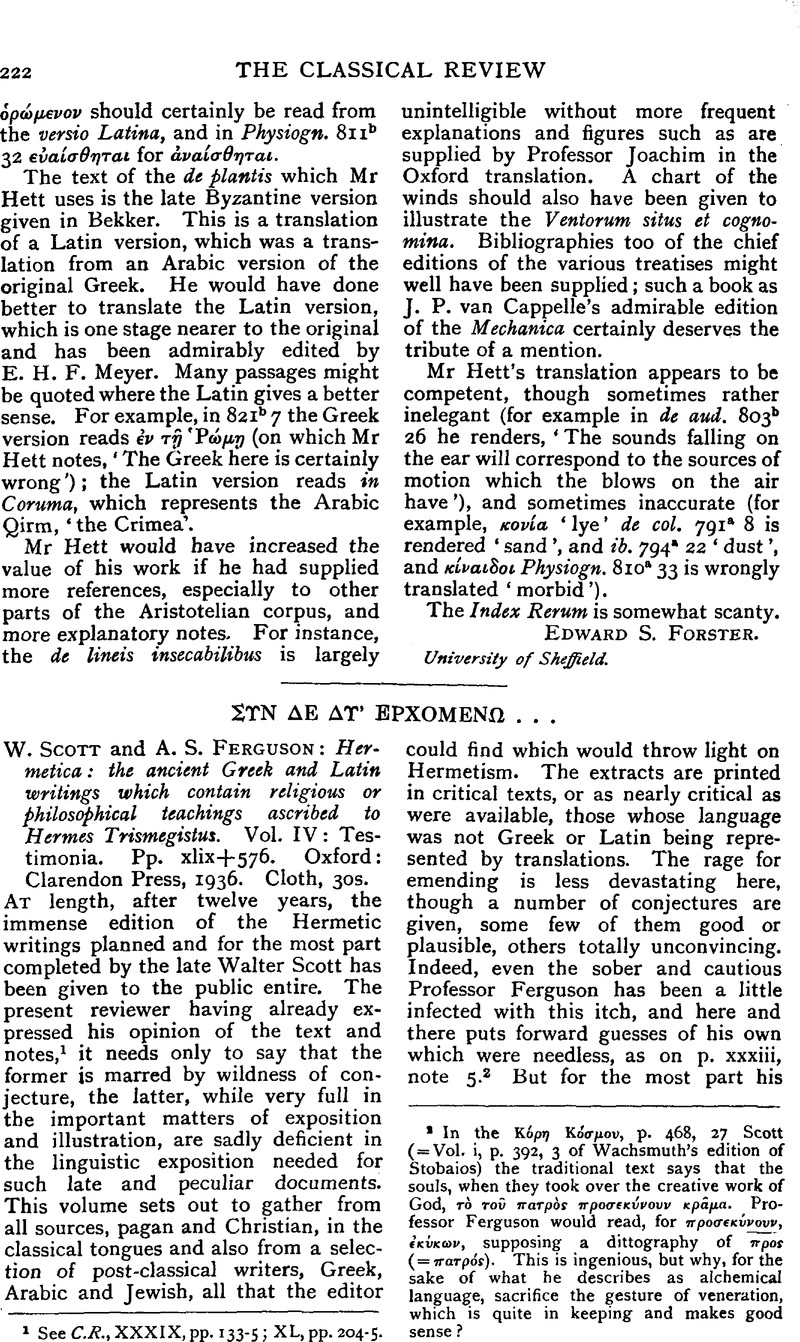No CrossRef data available.
Article contents
ΣϒΝ ΔΕ Δϒᾲ ΕΡΧΟΜΕΝΩ … - W. Scott and A. S. Ferguson: Hermetica: the ancient Greek and Latin writings which contain religious or philosophical teachings ascribed to Hermes Trismegistus. Vol. IV: Testimonia. Pp. xlix+576. Oxford: Clarendon Press, 1936. Cloth, 30s.
Published online by Cambridge University Press: 27 October 2009
Abstract

- Type
- Reviews
- Information
- Copyright
- Copyright © The Classical Association 1936
References
page 222 note 1 See C.R., XXXIX, pp. 133–5; XL, pp. 204–5.
page 222 note 2 In the Κρη Κσμου, p. 468, 27 Scott ( = Vol. i, p. 392, 3 of Wachsmuth's edition of Stobaios) the traditional text says that the souls, when they took over the creative work of God, ![]() . Professor Ferguson would read, for
. Professor Ferguson would read, for ![]() , supposing a dittography of προς (= πατρς). This is ingenious, but why, for the sake of what he describes as alchemical language, sacrifice the gesture of veneration, which is quite in keeping and makes good sense ??
, supposing a dittography of προς (= πατρς). This is ingenious, but why, for the sake of what he describes as alchemical language, sacrifice the gesture of veneration, which is quite in keeping and makes good sense ??
page 223 note 1 See pp. 40–2; Ferguson, p. xlii and note 1 there, is clearly unconvinced, as indeed any careful reader of the text must be.




